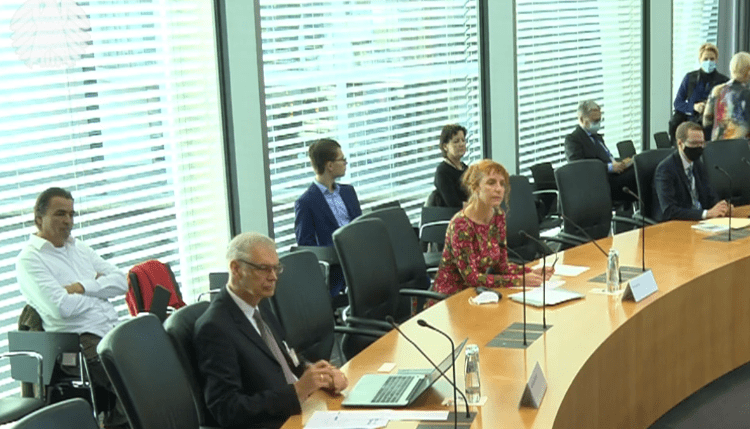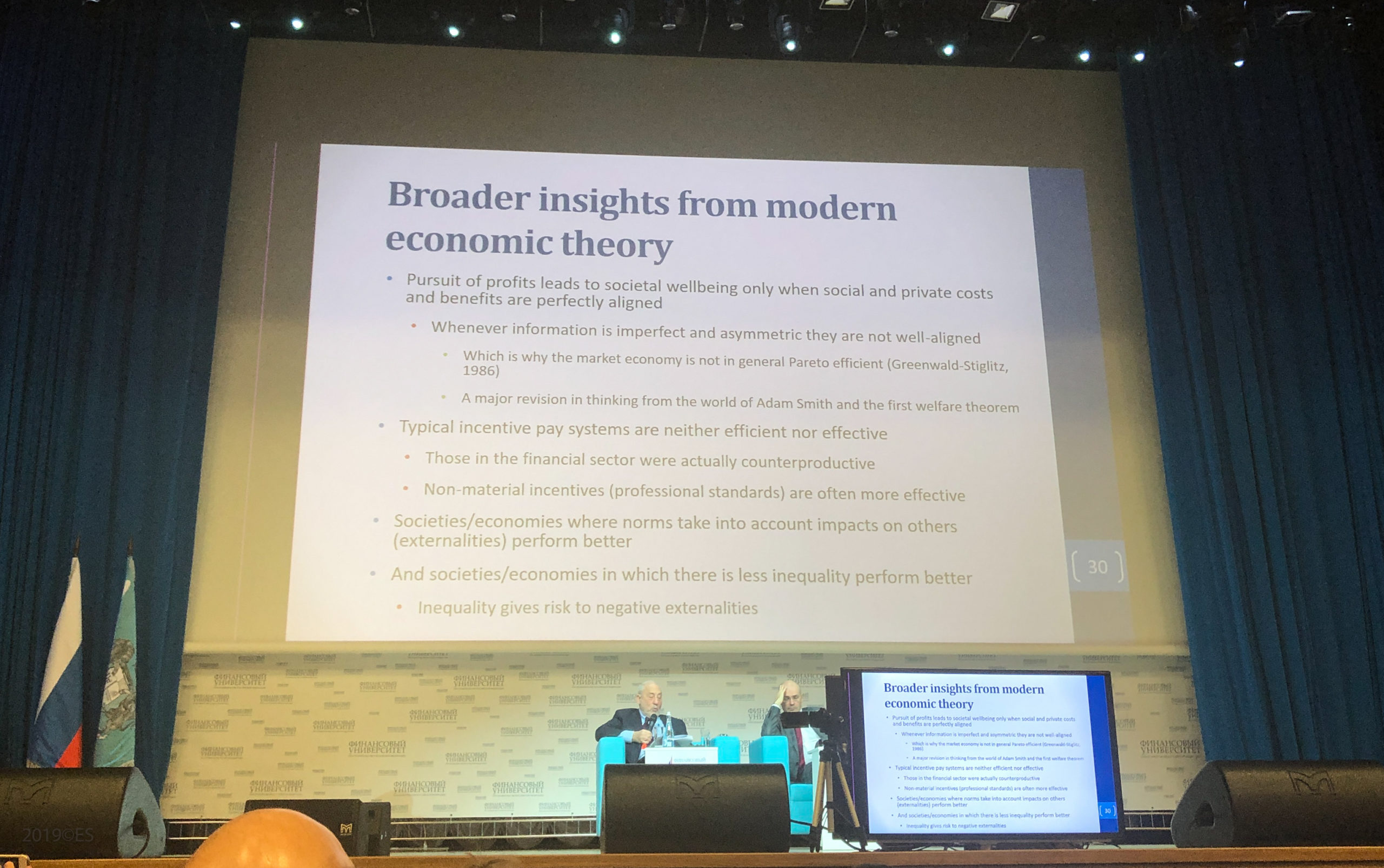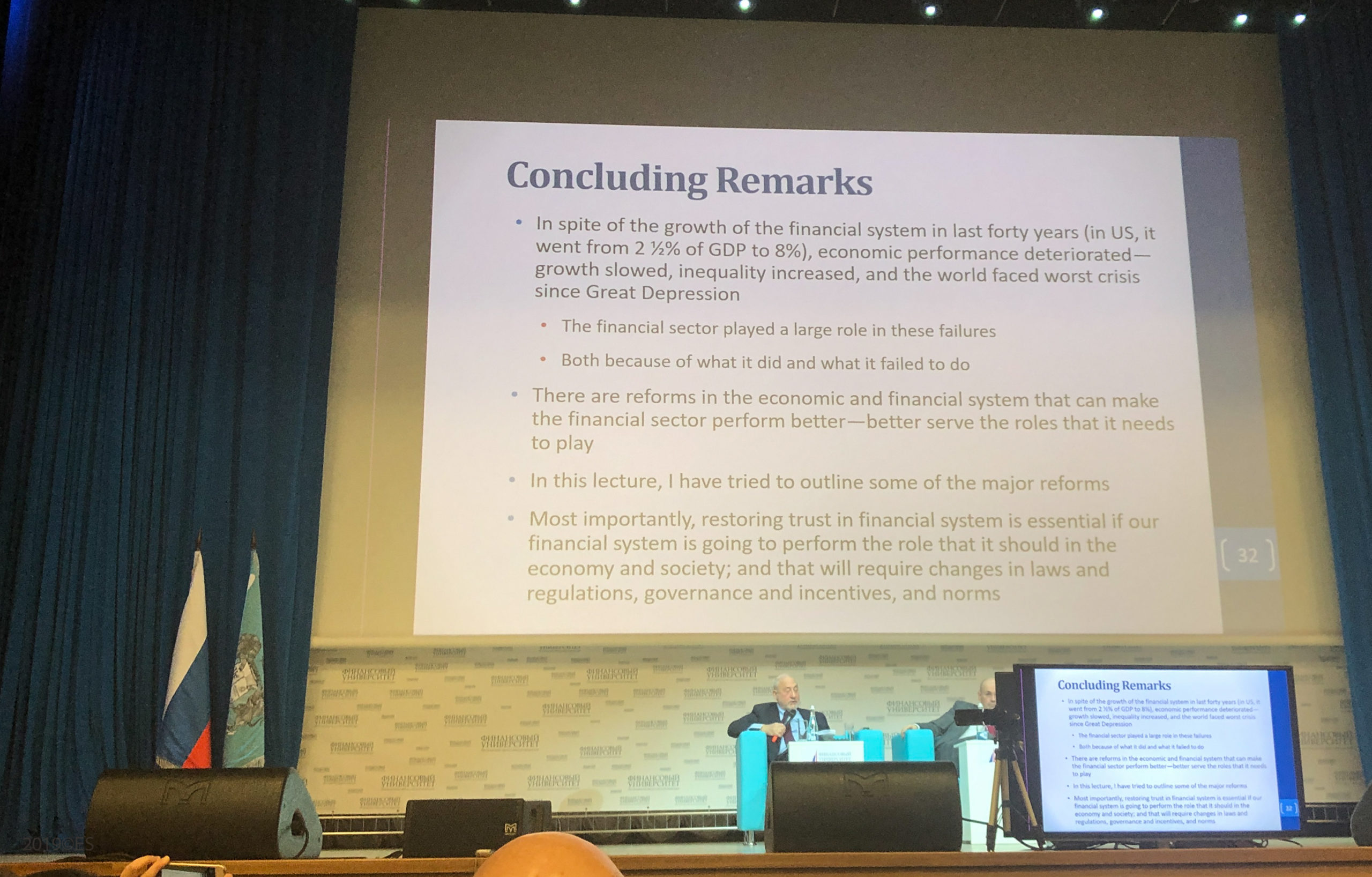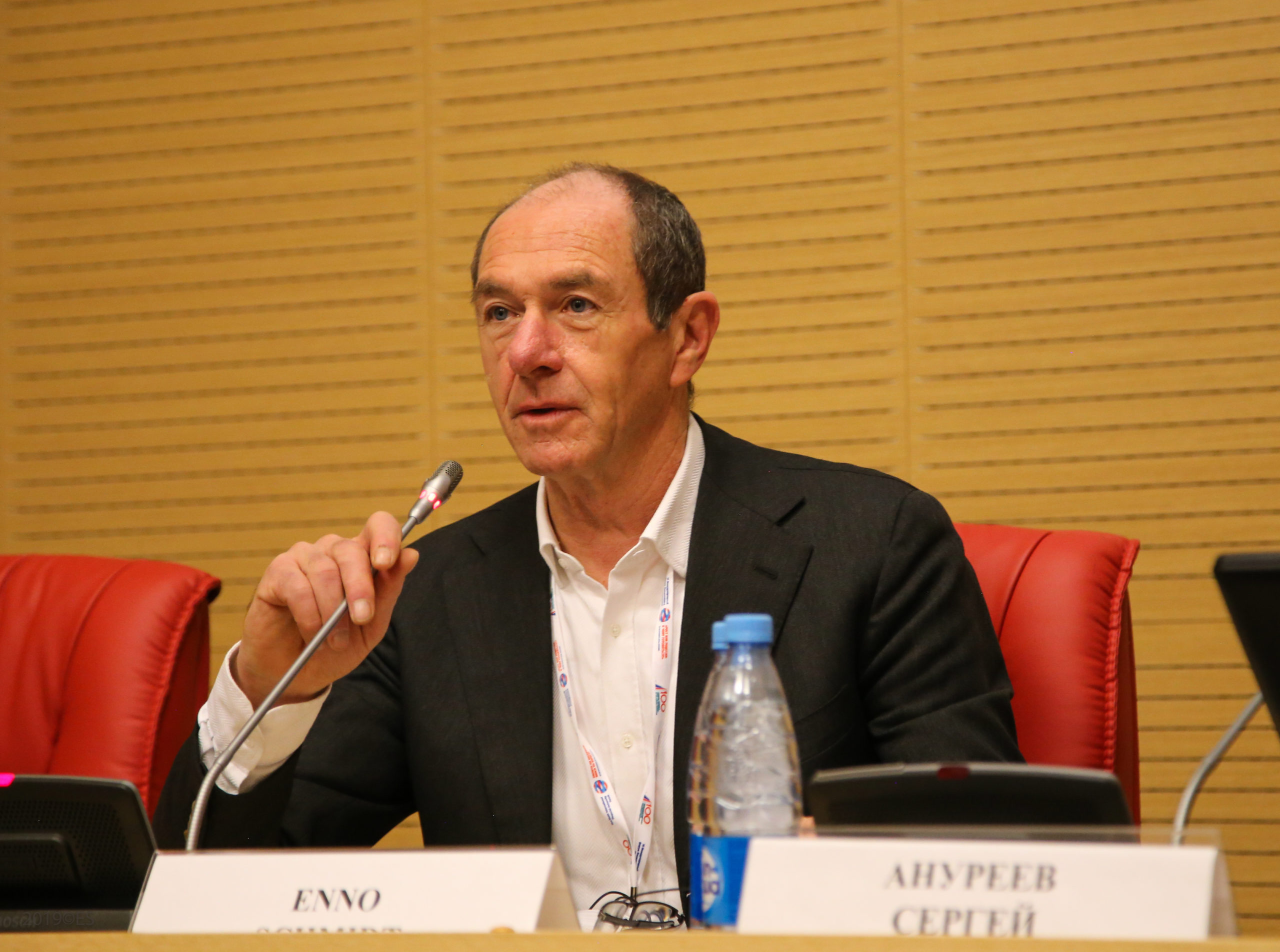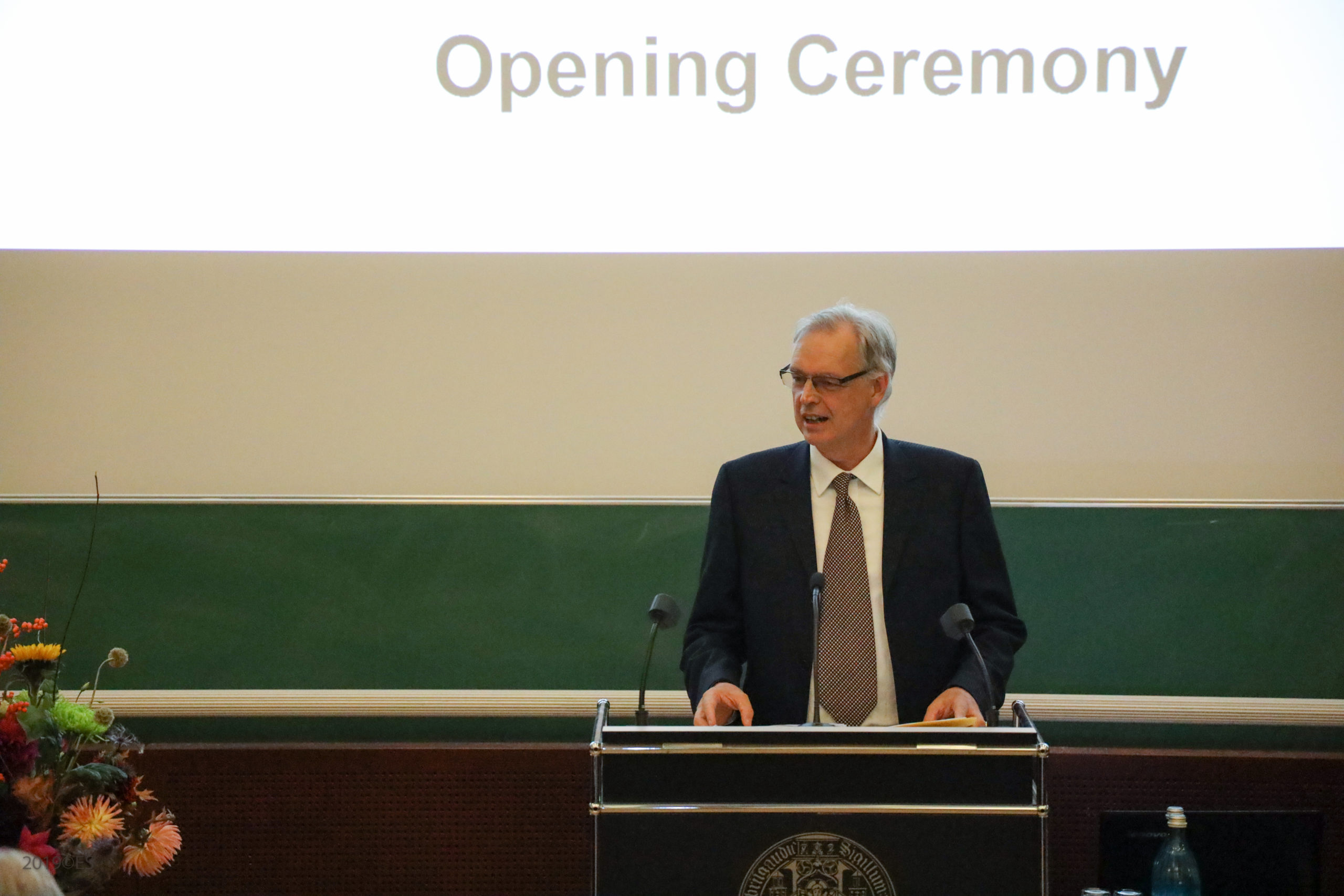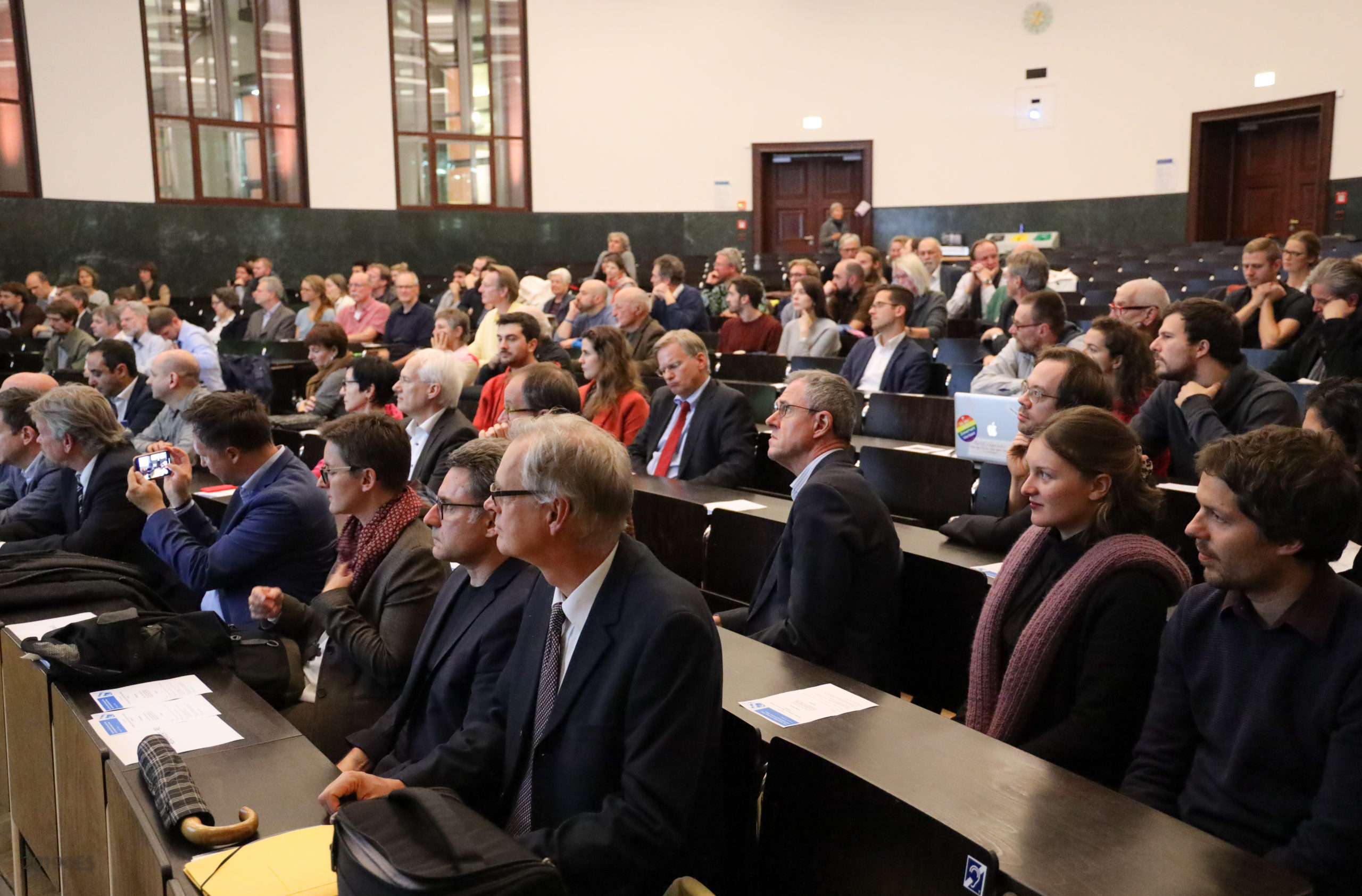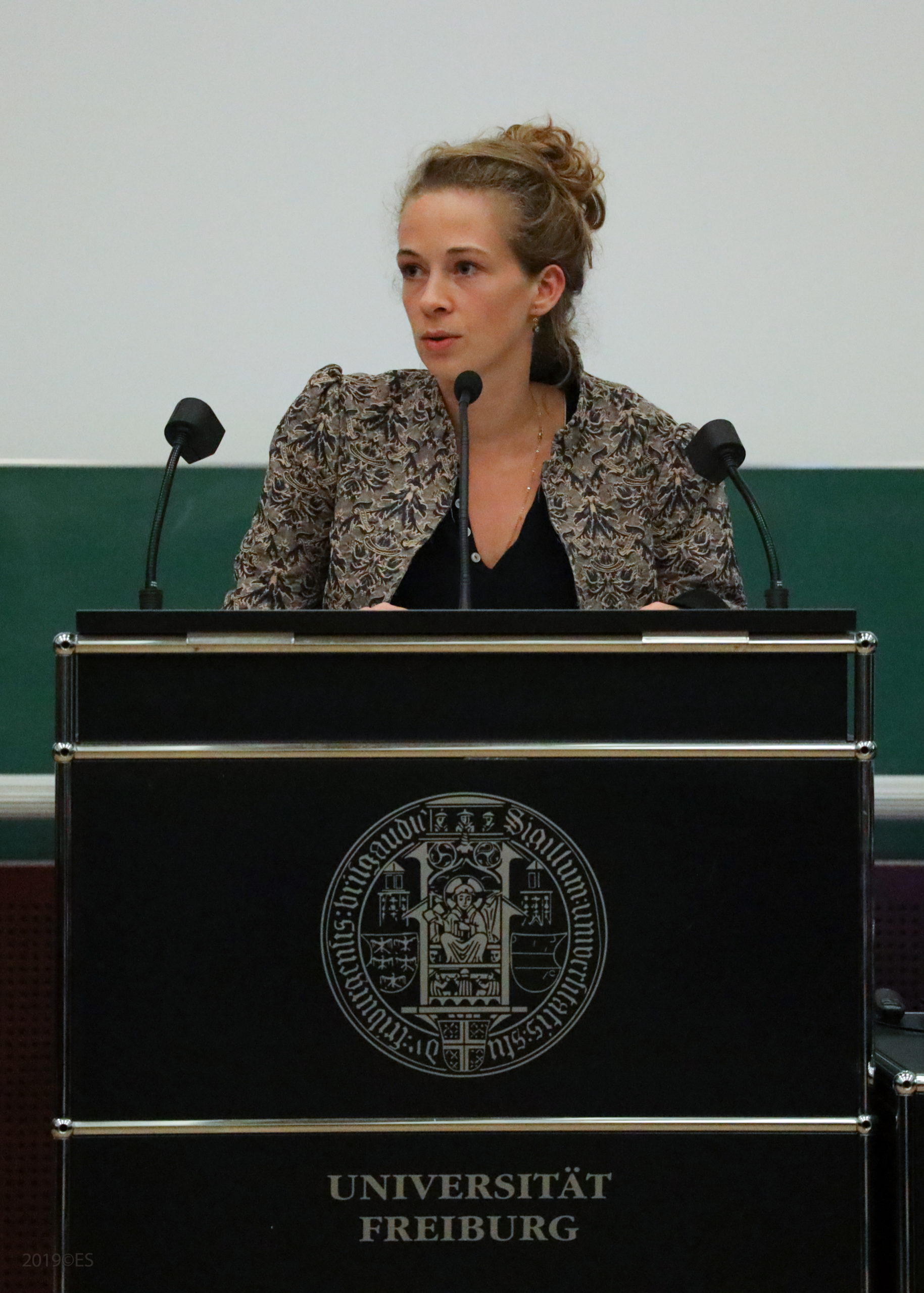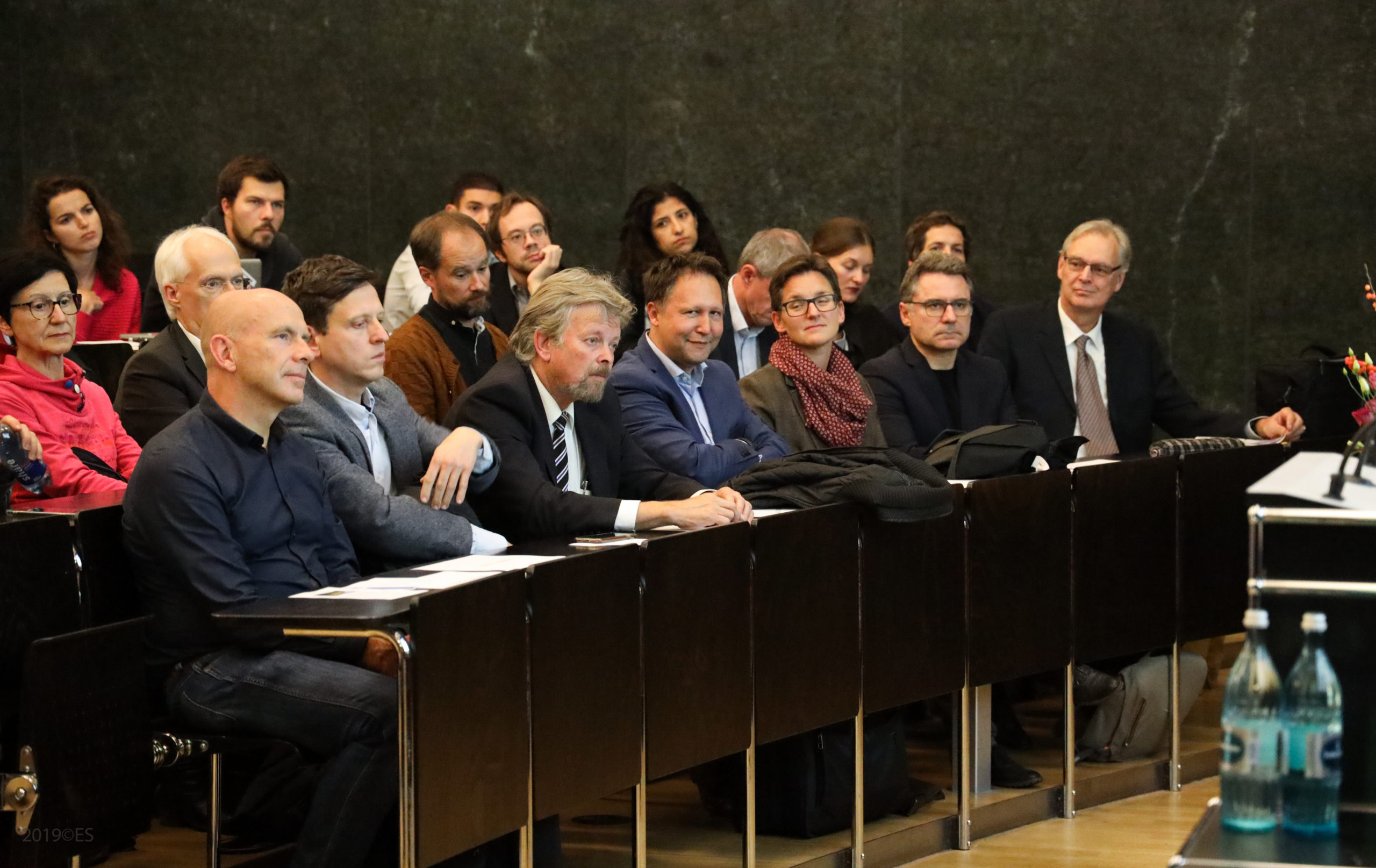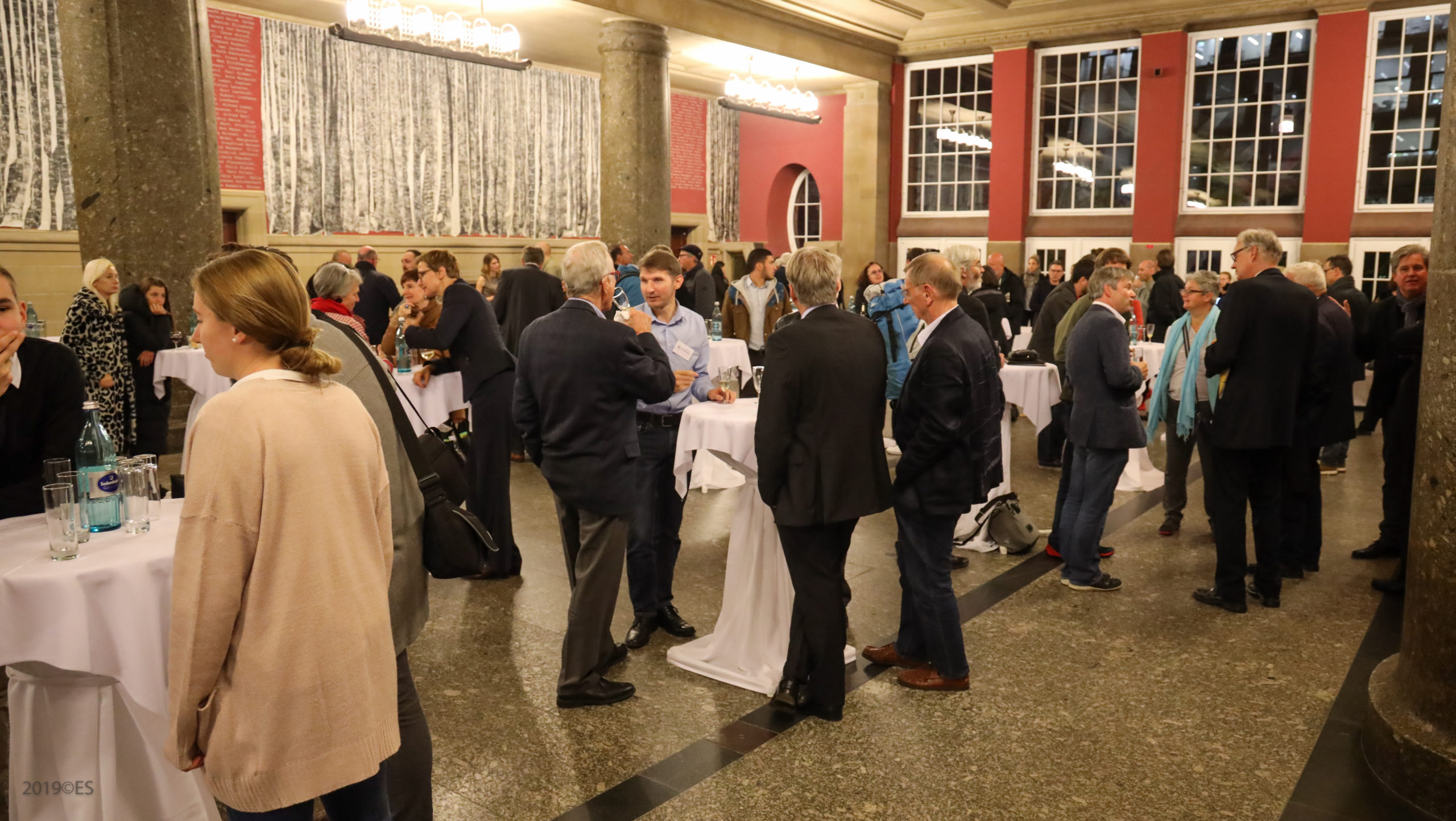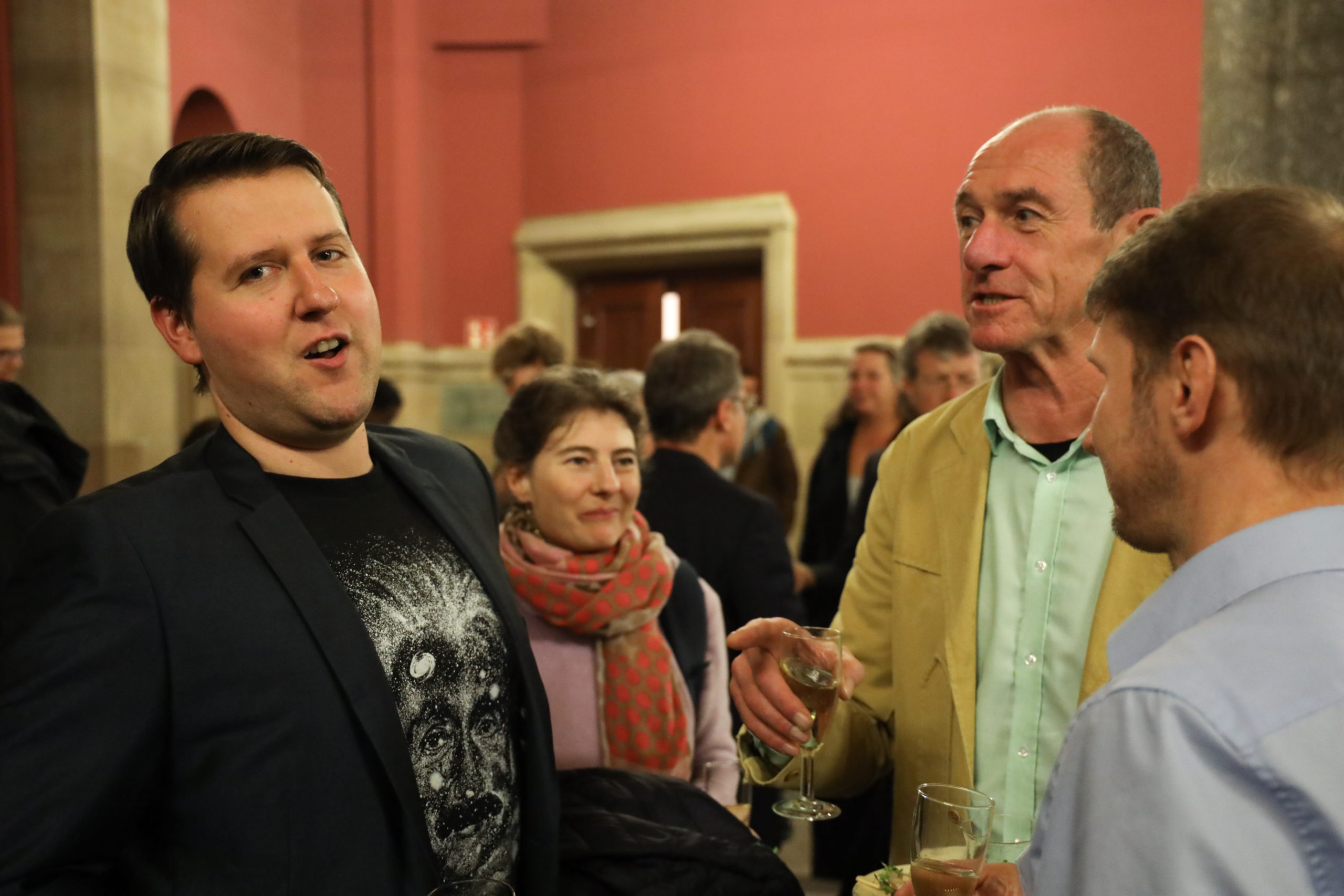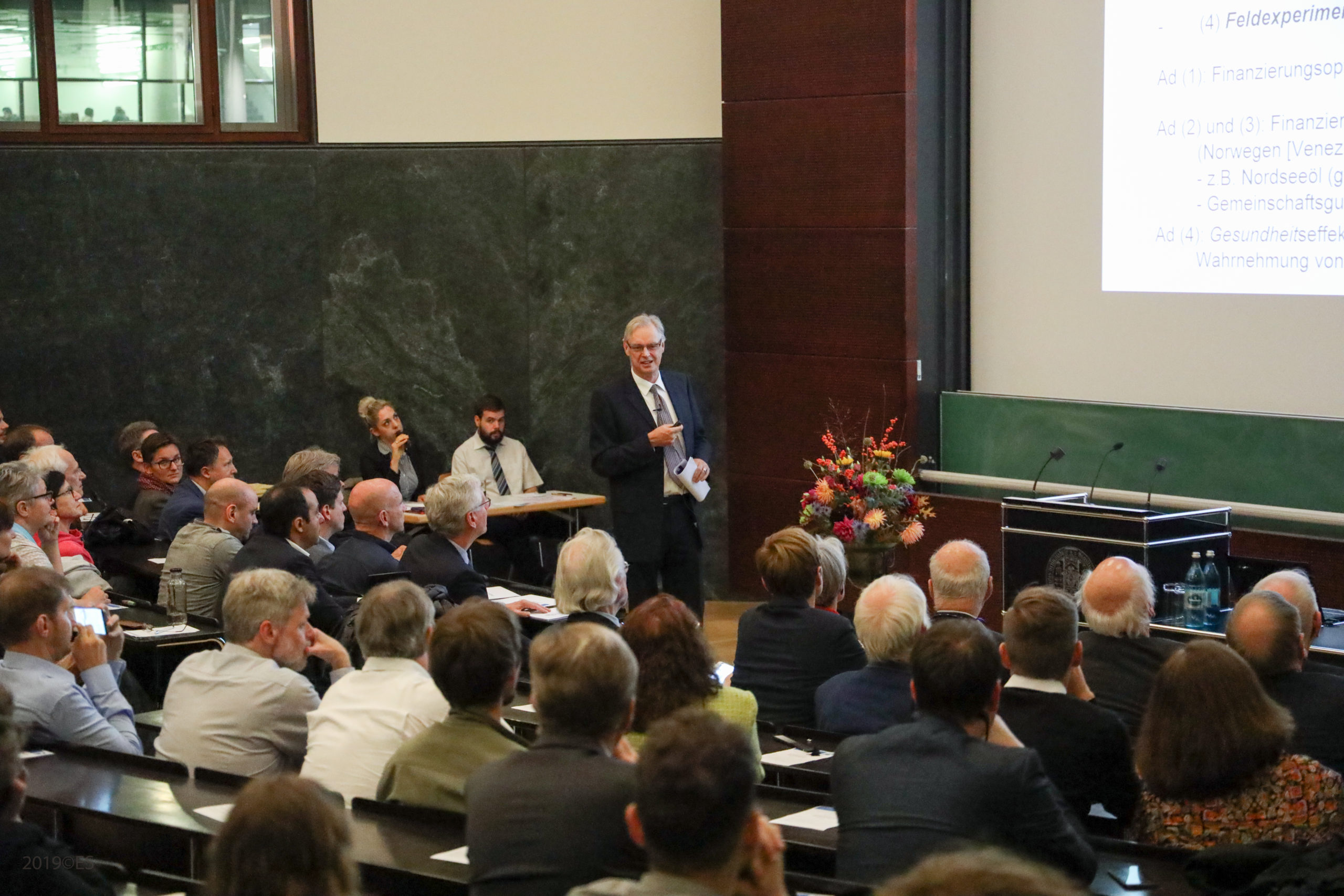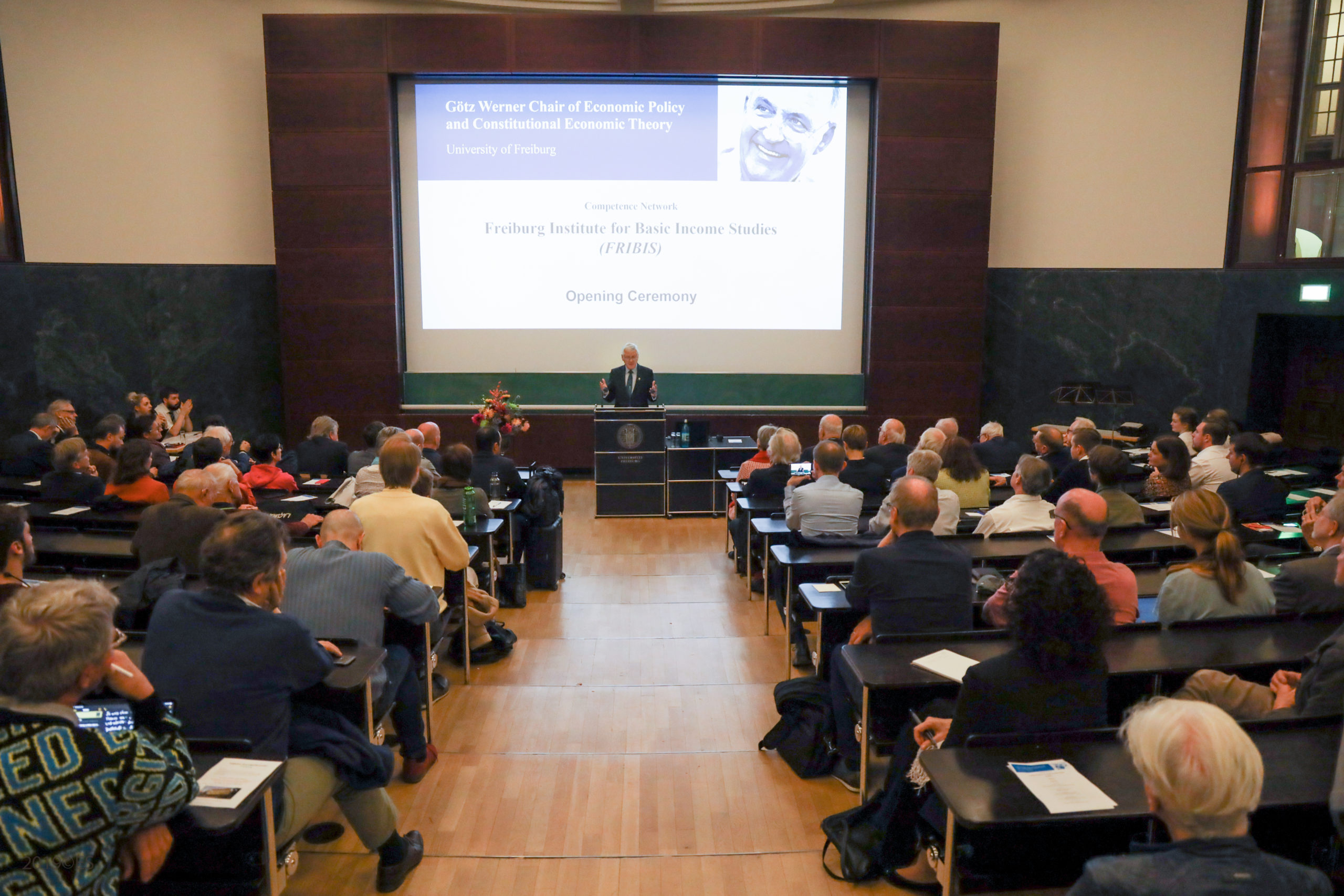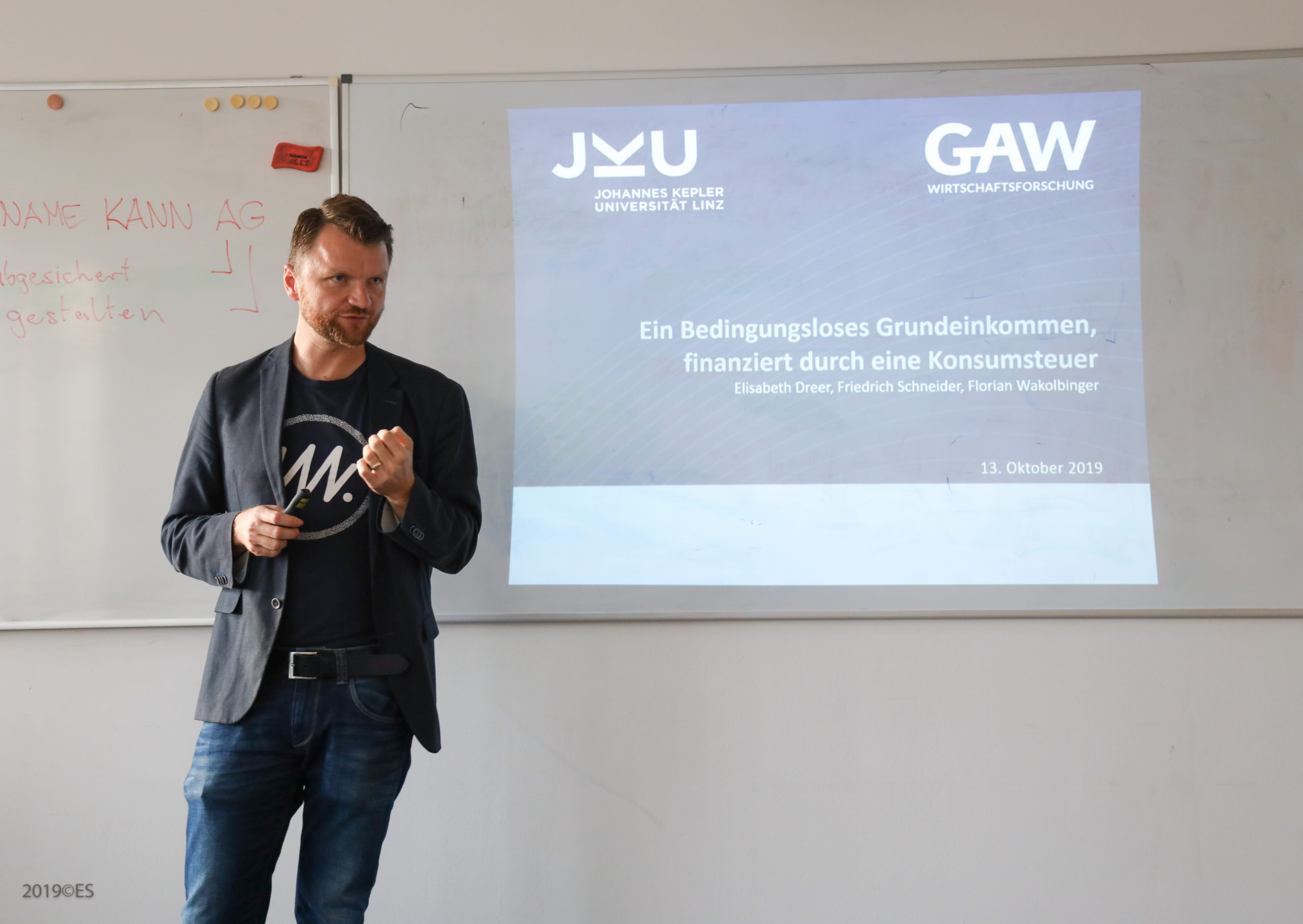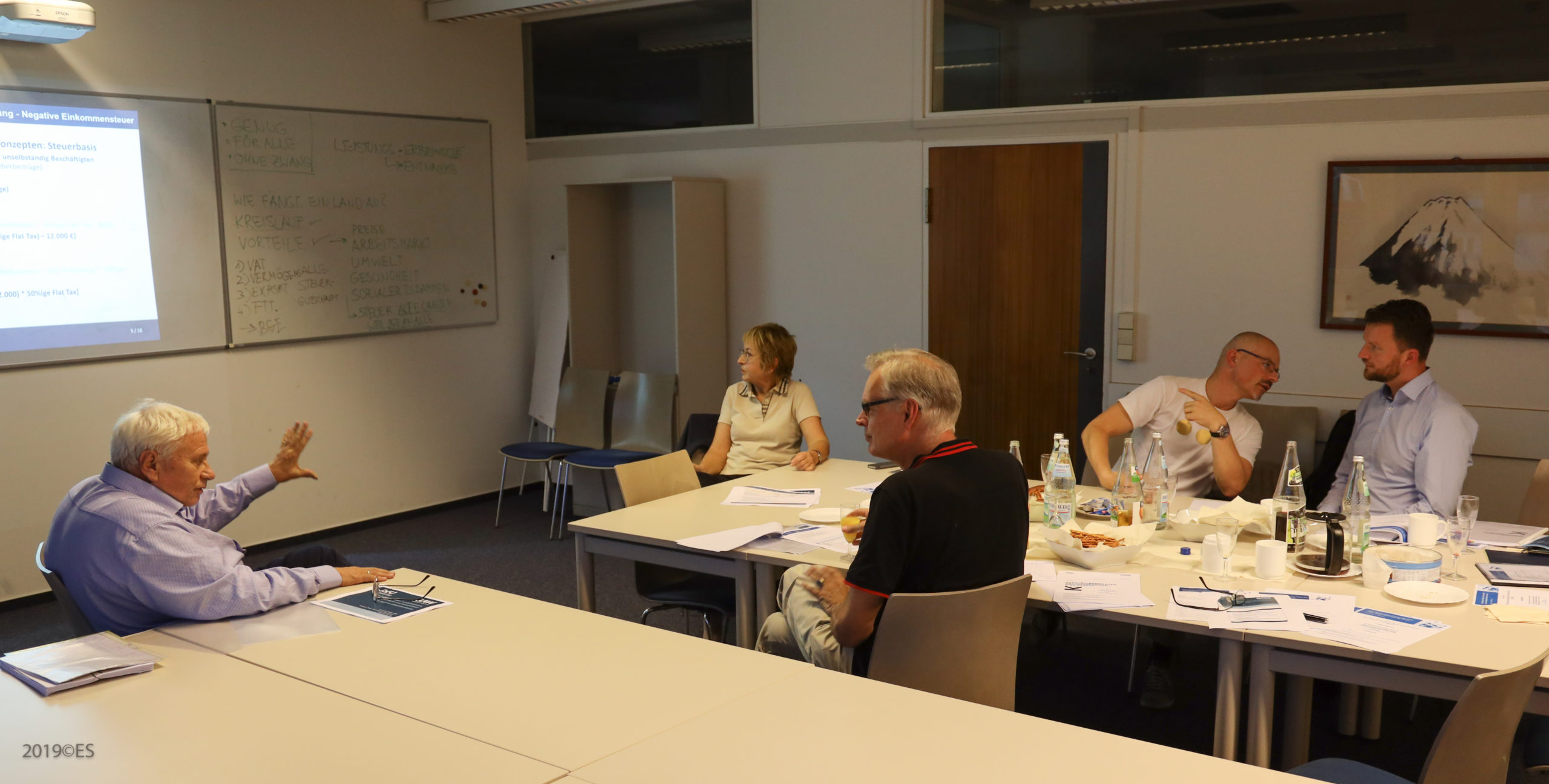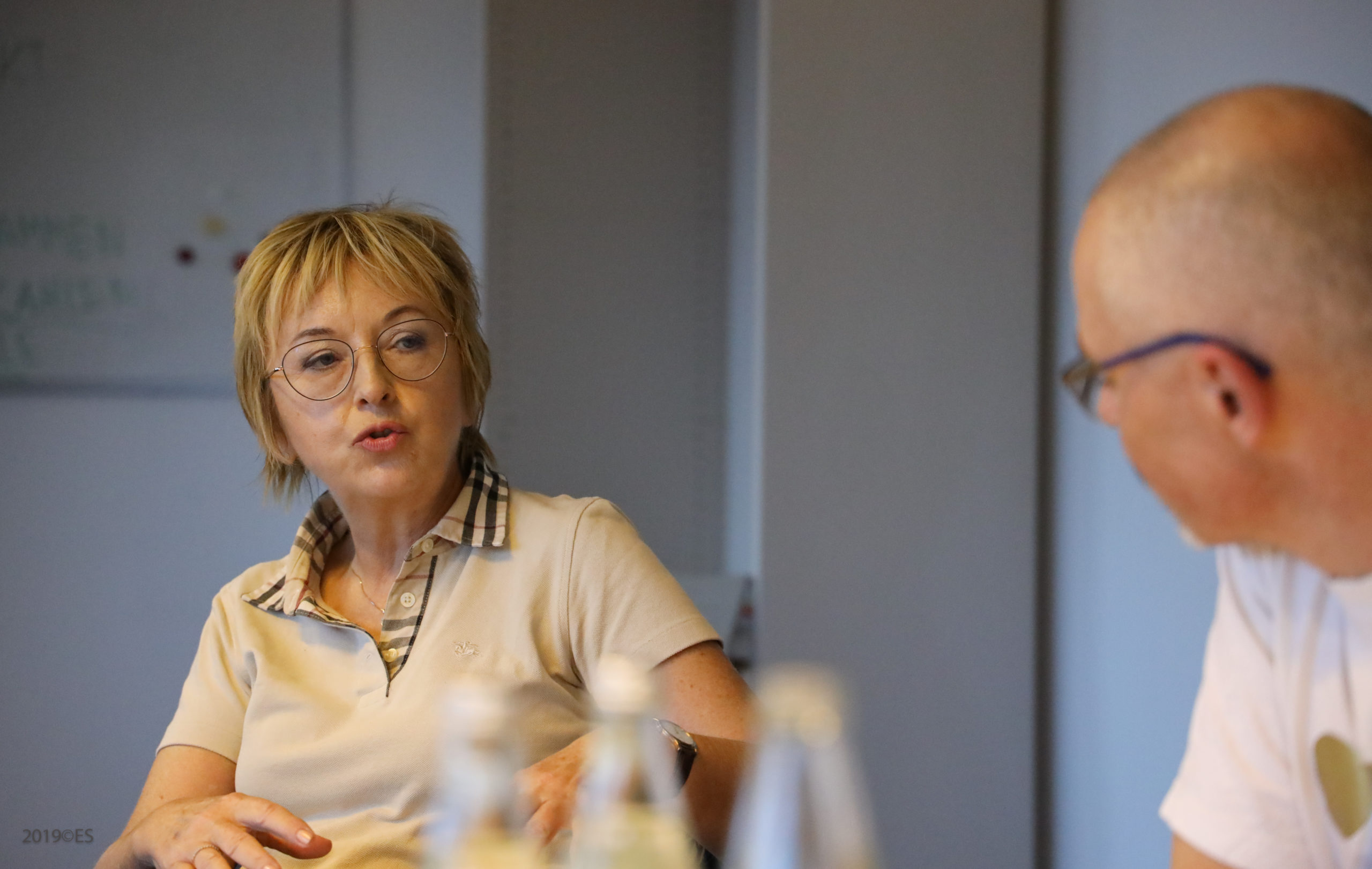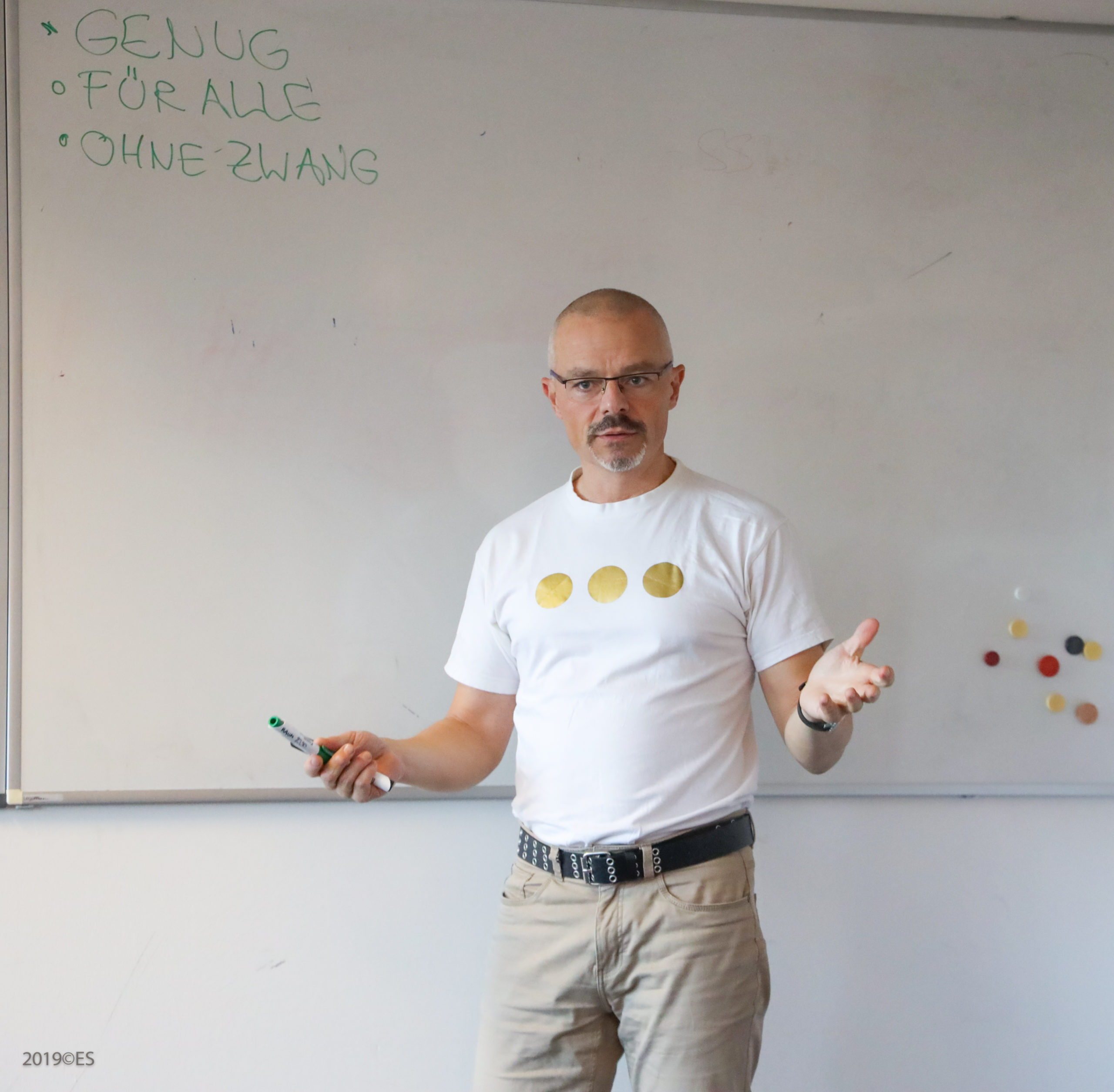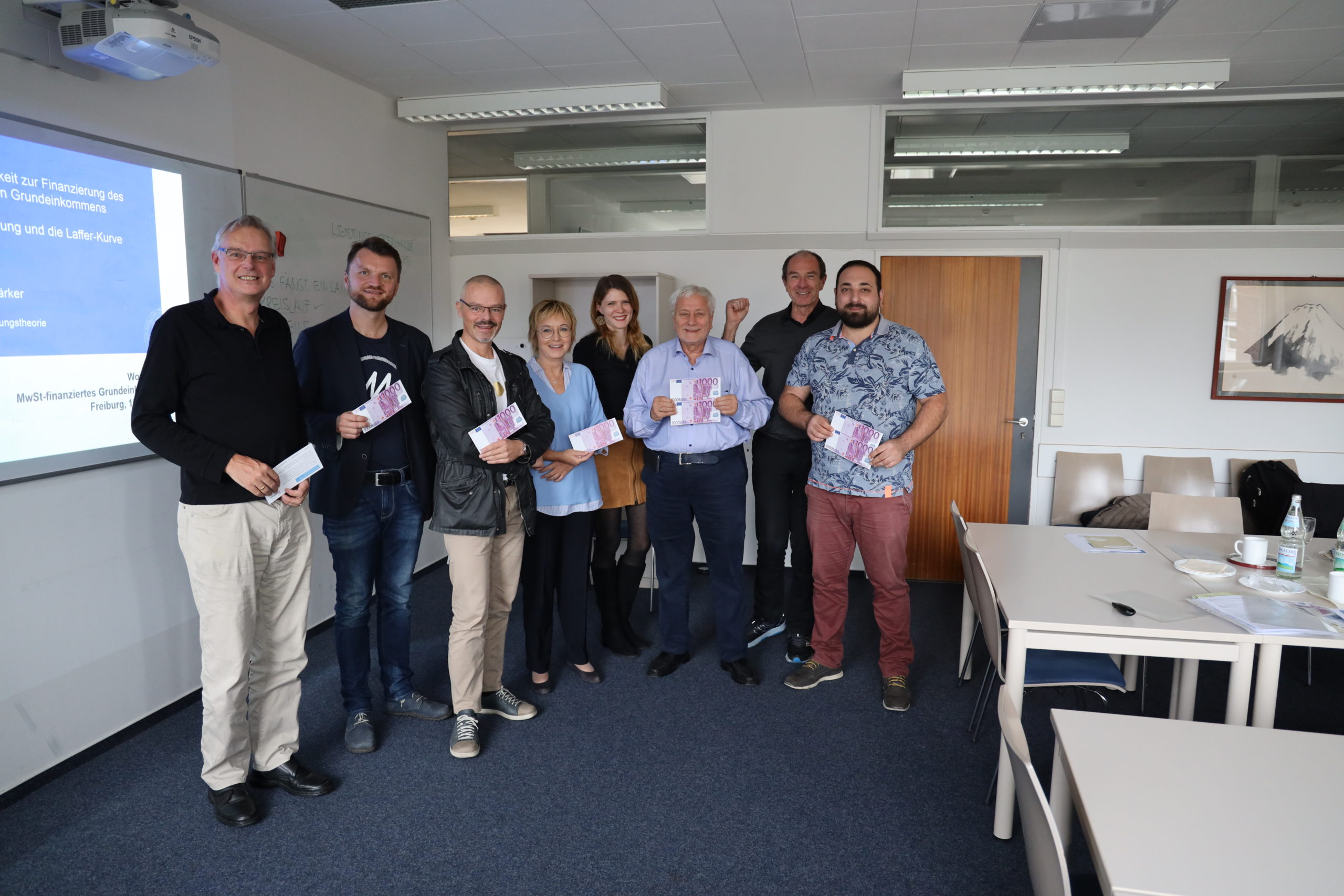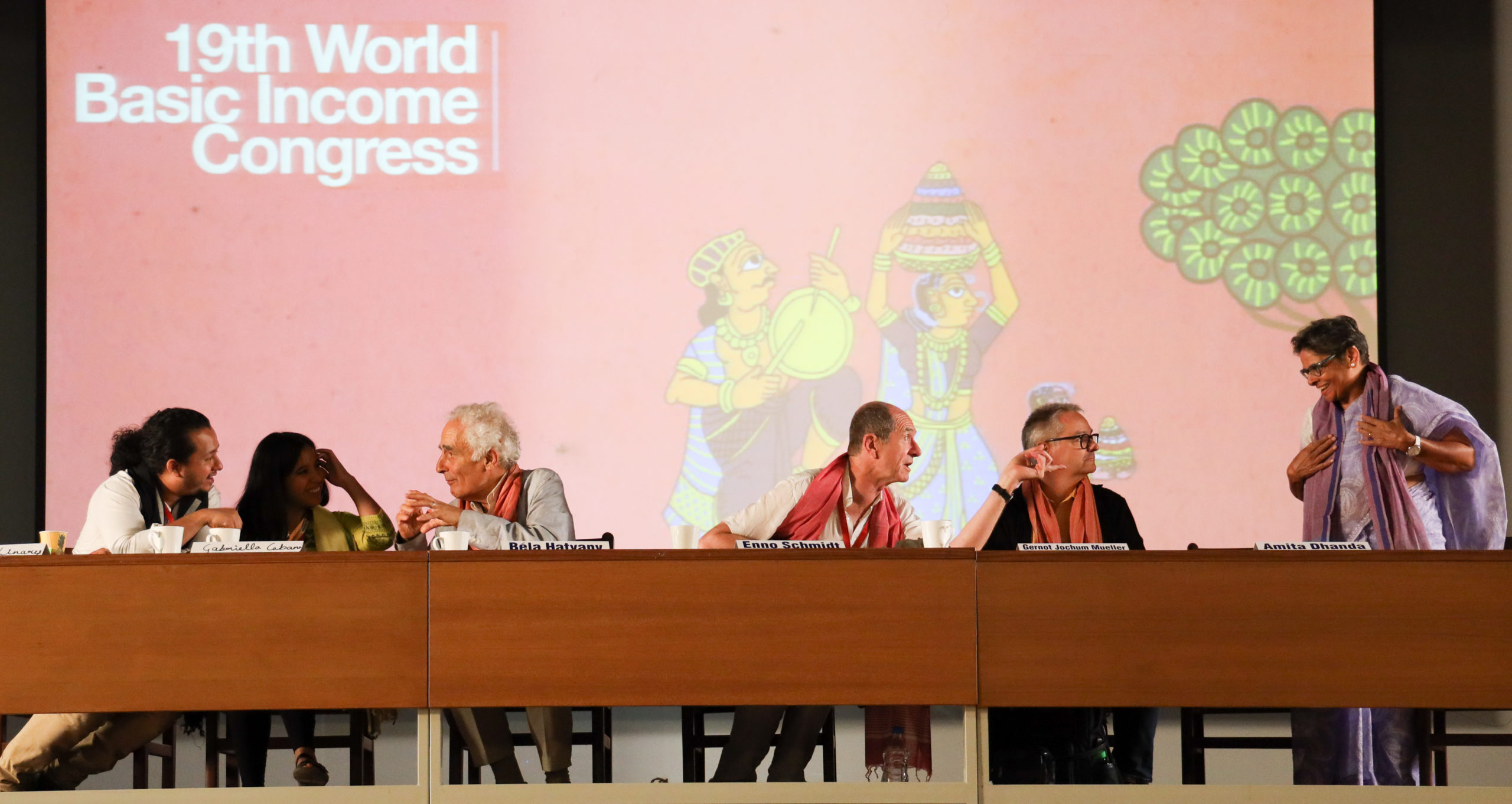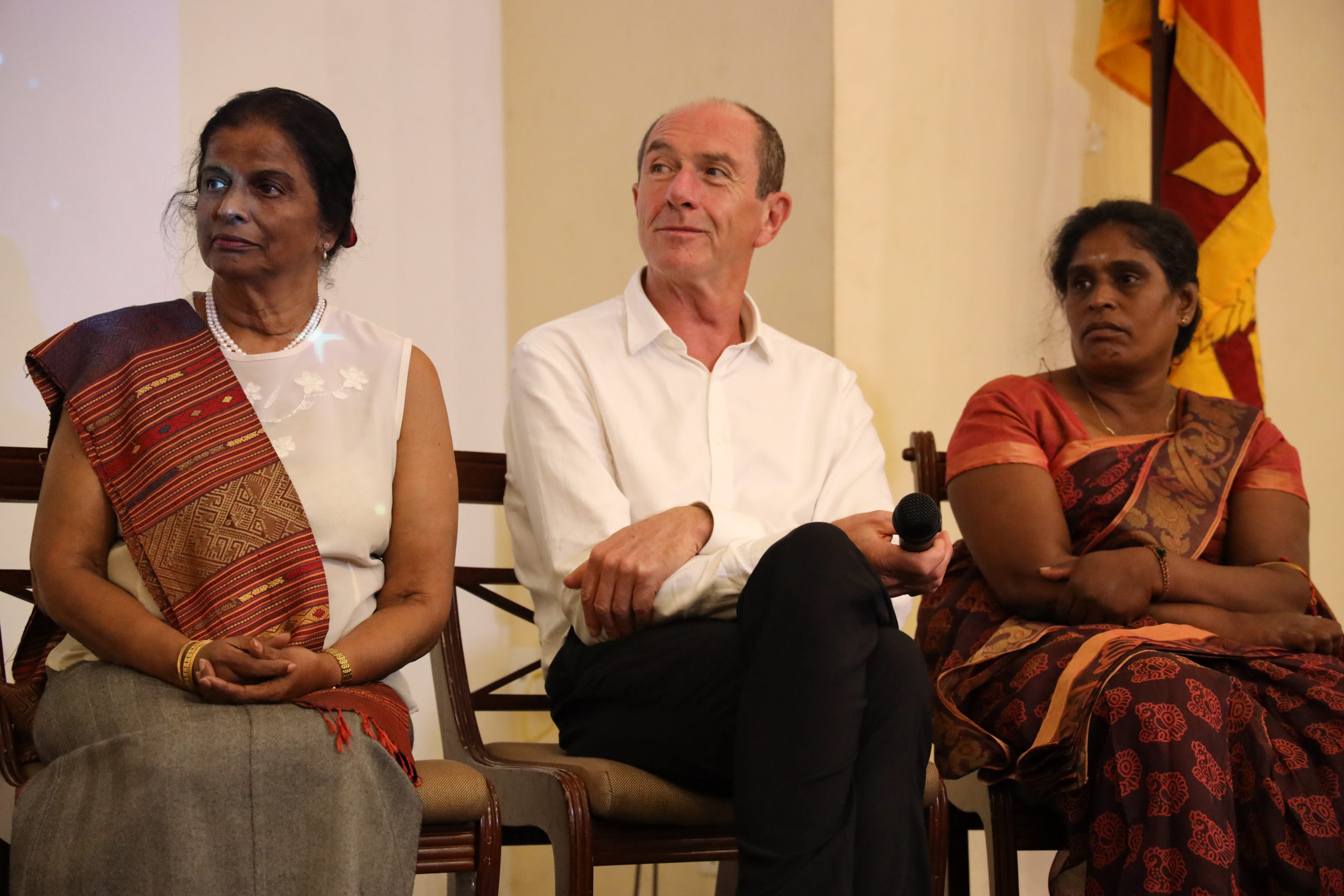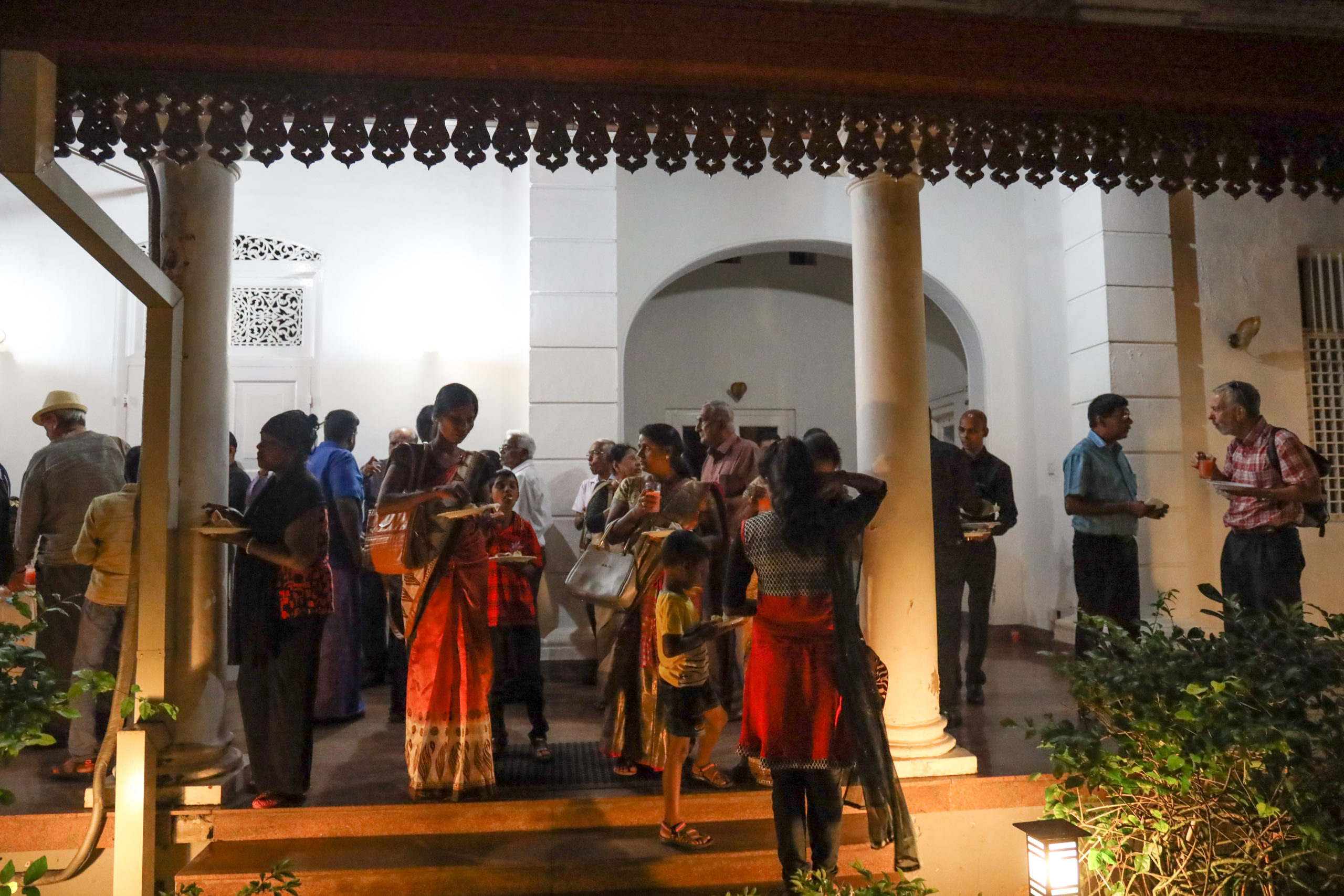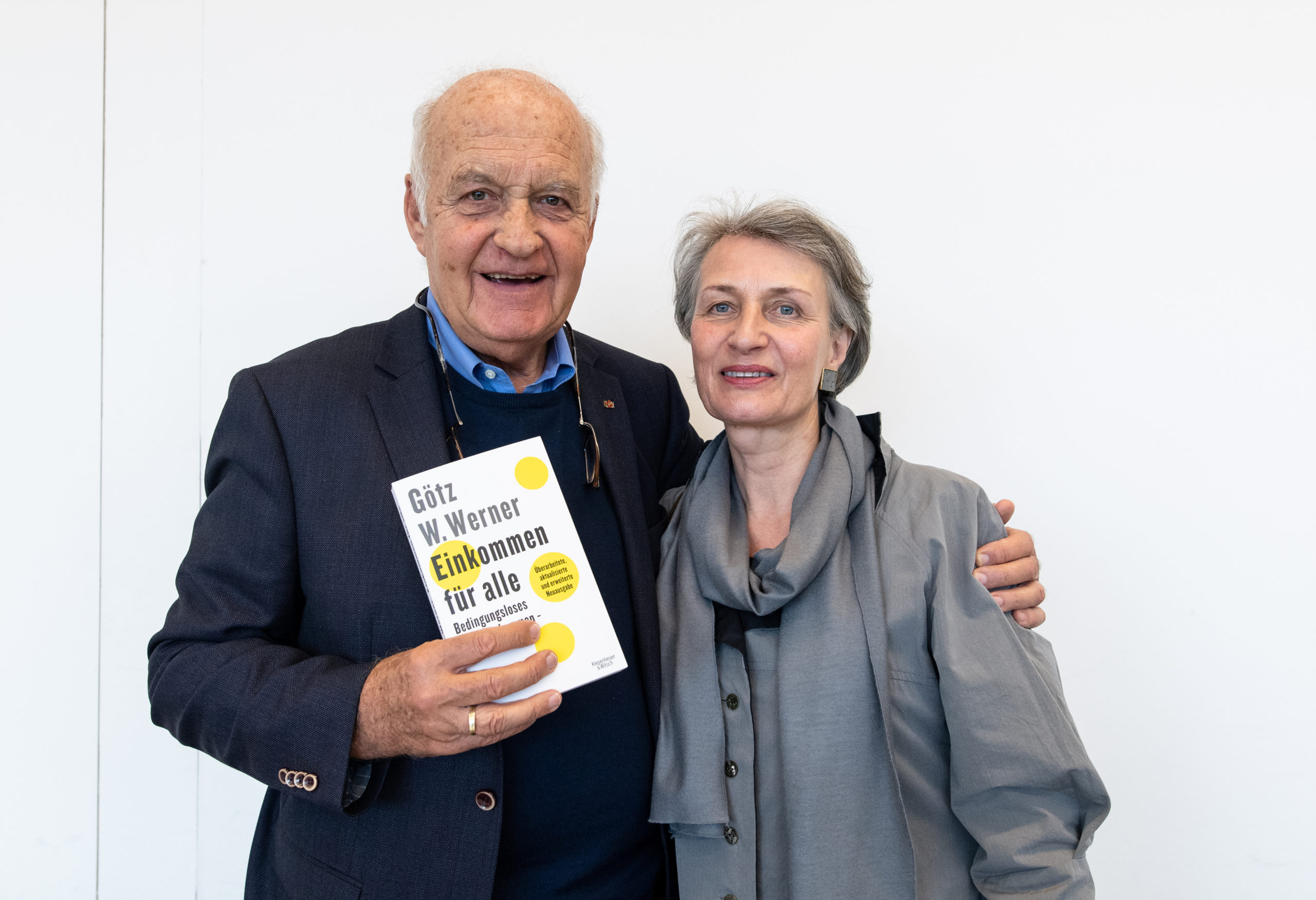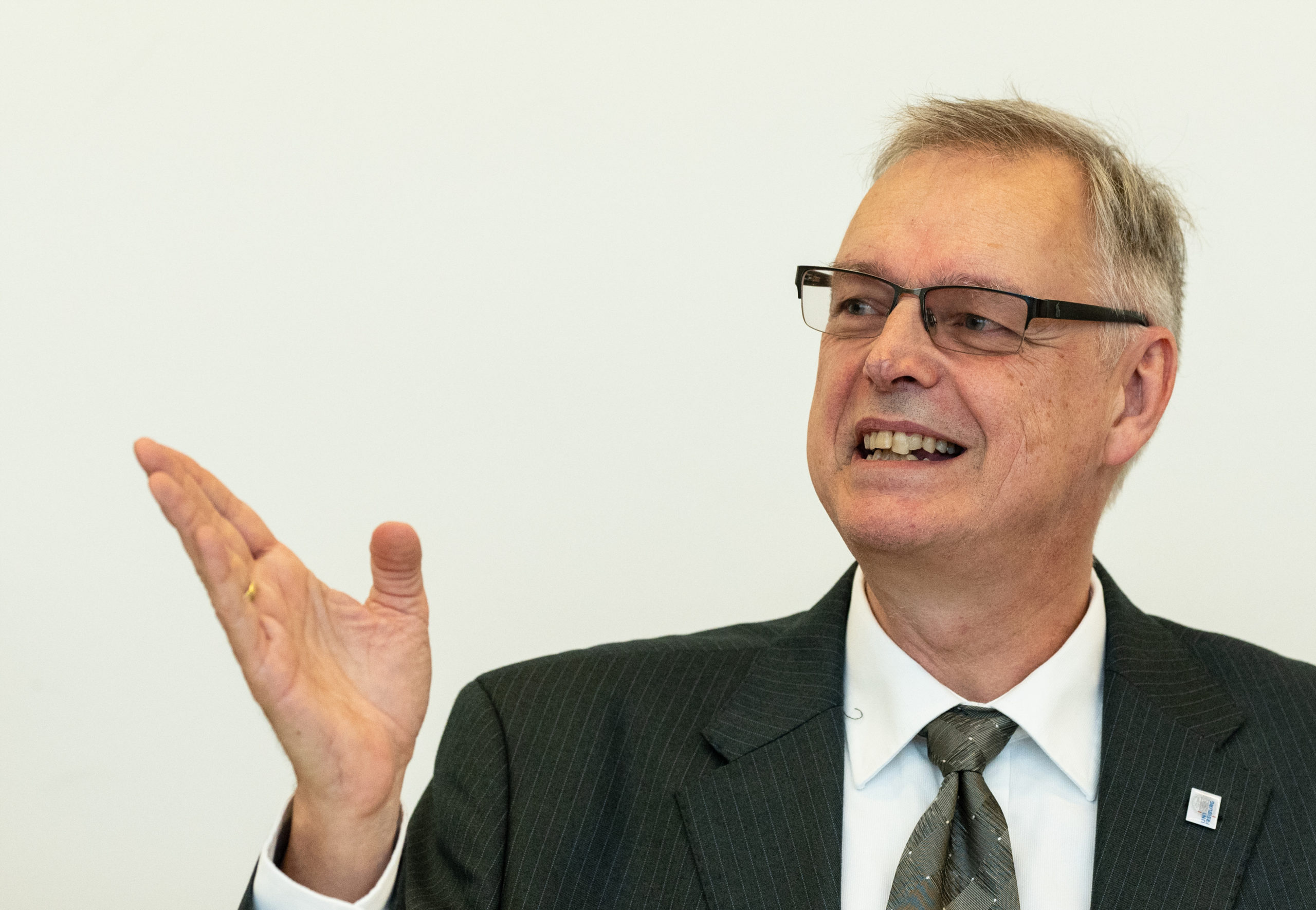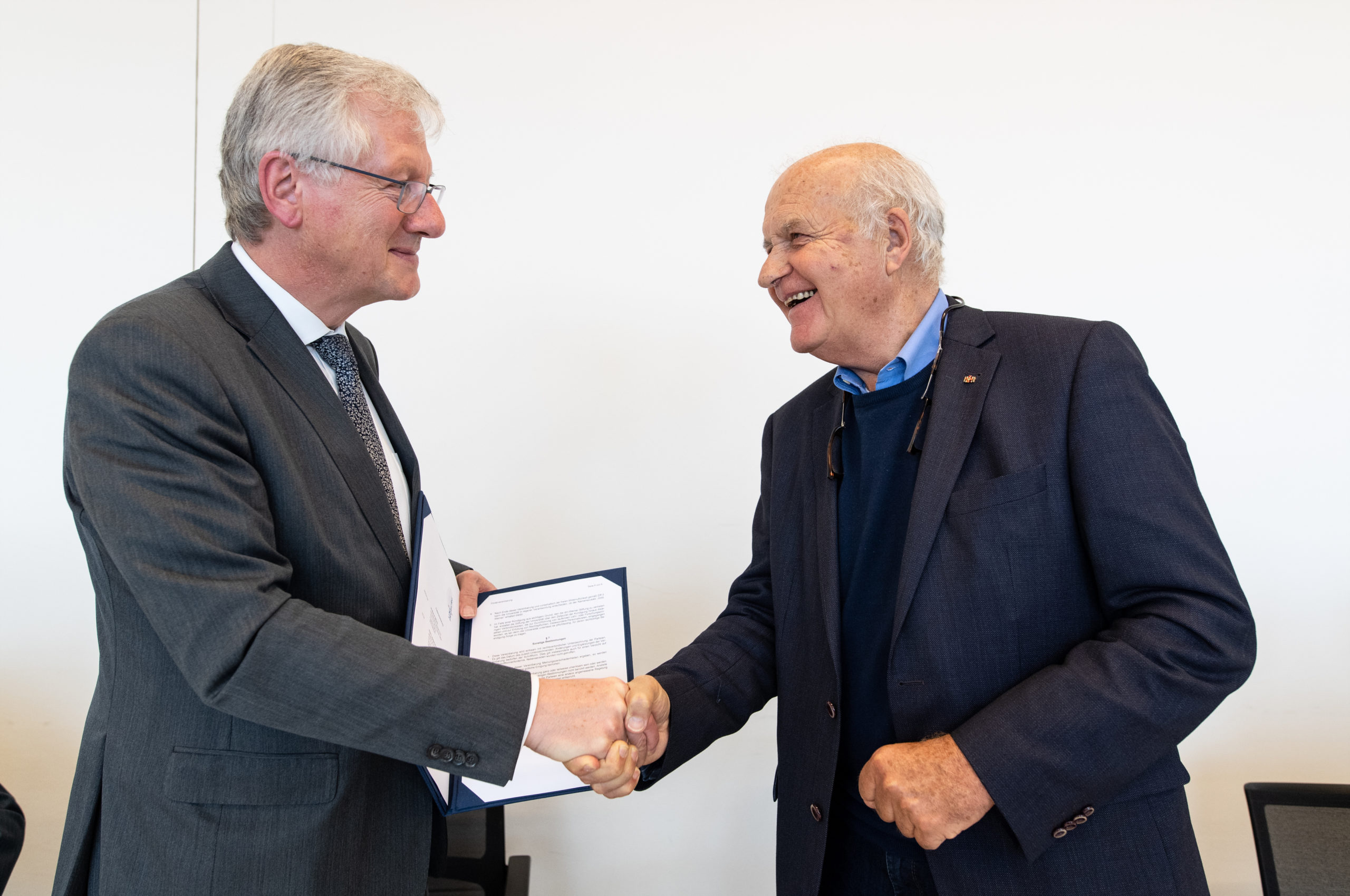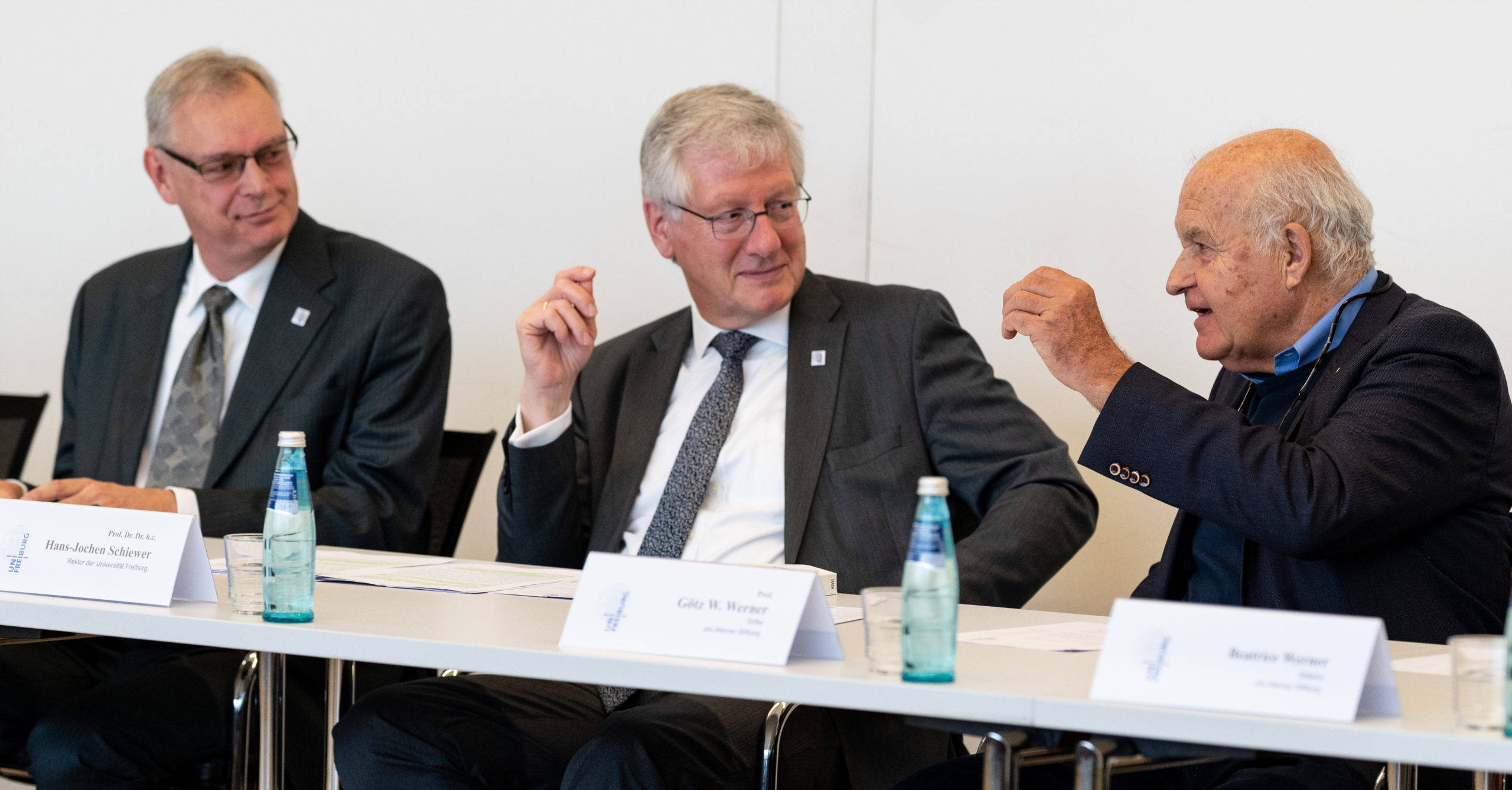May 19, 2020 | Commentary
In addition to the video the more in-depth written interview with Prof. Neumärker.
Would an unconditional universal basic income (UBI) help better in the corona crisis than the deferrals and loans granted by the state?
Prof. B. Neumärker: Yes. Instead of constant improvements due to new aid needs and the partly artificial rules for granting funds, there would be universal protection for all. My idea of a net basic income (NBI) is that every person in the population should receive € 500-700 per month unconditionally during the crisis period, and that rent payments and loan interests should be suspended. They can only be resumed after the crisis period. Net therefore means: without rent and loan payments. The NBI paid out plus (suspended) rent, interest and redemption payments results in the gross amount, which can then serve as a point of reference for a basic income outside times of crisis. Landlords and lenders as well as their employees naturally also receive NBI in times of crisis.
In this way, no credit assistance or transfers have to be given in order to be able to pay rent and loans in the sense of conventional thinking. Because these types of income can be “shut down” with the introduction of NBI.
Interest income from renting, leasing and money lending is, from a regulatory point of view, “non-performing income”, which cannot be serviced excellently in the crisis.
Instead of allowing or negotiating deferrals of rent payments and loan interests in individual cases, this is regulated from the outset and in principle for all with the NBI.
This will help many self-employed people, small entrepreneurs and startups, but also everyone else has basic security when the crisis hits them in terms of their income from work. Credit assistance is needed to a much lesser extent.
The NBIU is a “symmetrical” concept for “crisis justice”. Otherwise, there is a gigantic redistribution towards rent and interest income recipients, as their incomes continue to flow unhindered or are in the meantime financed by additional borrowing from others, while many lose their income irretrievably for a time due to the government’s crisis management measures.
The NBI is comparatively easy to finance, as it is at a relatively low level of funding. I calculate for Germany an extra € 50 billion on top of the existing expenditure of the traditional social system. However, health has a special role to play in the current crisis, which is why expenditure on the health system and the associated part of the social security system must, of course, be considered separately.
The NBI is used to finance a base of consumption, which is of course also necessary in the crisis.
The important business based on it can, of course, continue to generate income from work, profit and capital.
Asymmetry is created in the crisis by these continuing activities and, above all, by services needed for health measures and critical infrastructure. For this, the state has to open up extra pots even in the case of NBI.
The large share of unpaid work in society – more than 50% of all work performed – is also ensured by the NGE. This applies, for example, to the care economy (nursing, looking after children, etc.) and is thus more a classic domain of women. The NBI makes living and thus also working possible, no matter how high their rentier status in the market for “investors” is.
The NBI, which creates crisis security and crisis justice, forms the basis in a reform concept of the long-term introduction of an expanded unconditional basic income (UBI), among other things instead of unemployment benefit and basic pensions. In the context of economic development after the crisis, the NBI can be increased to a “participatory UBI”, i.e. to a UBI of approx. € 1200 to € 1500 per month, since a higher basic income can be financed when the economy returns to “normal operation”. In this reform step, “UBI” then means gross basic income as opposed to net basic income. In the event of the next crisis, the UBI can be reduced to an NBI again, like an “automatic crisis mechanism”, which means that the population is basically protected.
The old latrine slogan that the UBI cannot be financed and would lead to laziness on a large scale cannot be upheld by the crisis experience.
Thinking Europe-wide for a change: Do you also see the UBI as a solution for the people in the particularly affected regions in Spain and Italy?
Prof. B. Neumärker: In Spain, the unconditional basic income is already being considered. They can see the advantages described. But the political enforceability depends on politicians who are still unable to think the new even now and who are stuck in the old, largely neo-liberal, one-sided or at least dominantly competitive economic system from the time before the crisis. In Spain, market-compliant or capital-led economic policy is on the brink of collapse, primarily because of the fact that there is a minority government.
With a view to European cohesion, I would also argue in favour of the so-called Euro Dividend, which is paid out throughout Europe as a UBI and can be added to national social systems. The amount of a Euro Dividend, for example, would be € 250 per month for each citizen of the EU. This amount can be financed by euro bonds during the crisis and then by VAT or – even better – by a tax on integration gains because the economic and social advantages and disadvantages of European integration are shared by all citizens. This is solidarity, not least in the sense of tolerance, in that the benefits of integration are now distributed quite unequally. At the international level, Germany’s high integration gains are “tolerated”, and Germans show “gratitude” for the poorer regions and countries. The Euro Dividend also makes individually varying integration gains and losses acceptable at the national levels.
The corona crisis will impose unprecedented burdens on all countries. How could the UBI be financed?
Prof. B. Neumärker: Compared with the immense amount of debt that Germany, for example, has taken on for all kinds of credit assistance, which in the long term gag the public financially both through the public budget and privately and drive them into dependency because of the federal government’s loan repayments and the servicing of the loans taken out, the amount of government borrowing to finance the NBI would be relatively small in the crisis period. Financing in the crisis would, therefore, be comparatively comfortable through federal borrowing.
In post-crisis times, the NBI can be expanded to the BGE and financed through VAT or as a negative income tax. The population will certainly appreciate this security and will not regard the financial burden as too high.
Economists expect a severe economic crisis after the corona crisis. What would the unconditional basic income mean in the situation of a heavily braked economy? People would have money, but there would be no goods to buy?
Prof. B. Neumärker: As long as the economy is not geared to performance, the Net Basic Income serves the “maintenance economy”: food, basic services, maintenance of critical infrastructure. Here, the government simply has to ensure that the necessary trade is maintained. After all, demand is basically secured by the NBI.
Depending on how quickly the economy and society (!) recover, the NBI can be increased up to the participatory UBI. By building up production there is then more potential for goods consumption. At the same time, however, the people have also gained time sovereignty and self-determination options through the unconditional basic income. At the same time, power in society, politics and the economy is redistributed to the individual. The citizens should let this cost them something.
How realistic do you consider your scenarios to be? When would be the best time to implement the universal unconditional basic income?
Prof- B. Neumärker: The best time is now and as soon as possible.
The discussion is getting more and more heated. Not only in Spain: petitions are also running quite successfully in Germany in particular for self-employed people, small entrepreneurs, artists, but also for employees who are suddenly made redundant, do not feel sufficiently protected by unconventional conventional policies. There is a high risk of private insolvency. People do not want to be dependent on the fiddling with apparent requirements and not on the questionable accuracy of individual transfer payments and credit assistance when every day new “necessities” make the previous state action obsolete again and again and also make the state weak.
This current procedure is a muddling through of the unstructured way, which should be stopped. If a large number of citizens recognize this – and the demand for the introduction of UBI comes from civil society – and if the state knows how to act only in a less and less structured way, UBI has a chance of introduction, especially through the NBI in the crisis.
The subsequent reform and stabilisation step in the post-crisis period will be able to build on the experience with the crisis basic income and will consequently have more support in society and politics than the introduction of participatory UBI in good times. The crisis allows a justifiable gradual build-up instead of a big bang UBI reform or a slimmed-down, untimely partial UBI only for the sake of increased implementation chances in a phase of a prospering economy.
Apr 7, 2020 | Commentary
Originally published on tbd*
About the author: Ronnit Wilmersdörffer has been working in the social start-up sector for five years and recently joined the Expedition Basic Income team. Expedition Basic Income initiates and accompanies referendums for a state model experiment of an unconditional basic income. By the way, the expedition is currently looking for a front-end developer – click here for the call for applications (in German).
How can one do justice to the purpose and the people in a team equally? This is not a trivial question: in business and the social sector alike, sacrificing for work (or a cause) is often expected or at least encouraged. Despite New Work Methodology and agile mindsets, the well-being and self-organisation of employees usually remains a means to an end to improve performance. So what does an organisation look like in which human well-being is more than a generously designed factor towards efficiency?
For five weeks I have been part of Expedition Basic Income, which is dedicated to the political advancement of Unconditional Basic Income. This is based on the freedom of the individual as an end in itself, but also on the belief that this is what enables people to have a positive social impact. The founders have also firmly anchored this attitude in their organisational culture: in addition to the expected drive, vision and entrepreneurial attitude, the preservation of self-determination – beyond social expectations and pressure to perform – is a significant component of organisational culture. This manifests itself on different levels.
On the one hand, the framework conditions for cooperation are individually designed – as is now the case in many places. On the other hand, there is an honest respect for the fact that people need space in their lives beyond work and projects: for hobbies, family, relationships and for physical and mental health. That is why the regular working week is only 32 hours long. Other elements of cooperation also change when the human component is given equal space to the factual work. In the team, there is relatively a lot of talk on moods, discomfort or conflicts on the spot – which is by no means always pleasant. But it also opens up space for research into causes, consideration, mutual support, conflict resolution and a more agile, sustainable way of working together.

The founders* of Expedition Basic Income – Laura and Joy.
It always remains a tightrope walk to reconcile the individual needs of all team members and the factual requirements of our work. Because, as everywhere else, in this organisation there tends to be more work than personnel, bottlenecks and hard deadlines. We also work overtime, sometimes even beyond our comfort zone. But the difference is this: If the baseline is self-care and sustained personal effectiveness – and not efficiency as an end in itself – then exceptional workload is more like a 45-hour week than a 65-hour week. Decisions are made to avoid such situations as far as possible and not to accept them. The space for self-care is confidently demanded by all team members and not excusingly justified. Because this is how we imagine a working world in which people participate out of their own motivation and not out of economic necessity. And this is the kind of world we are ultimately working towards.
Originally published on tbd*
